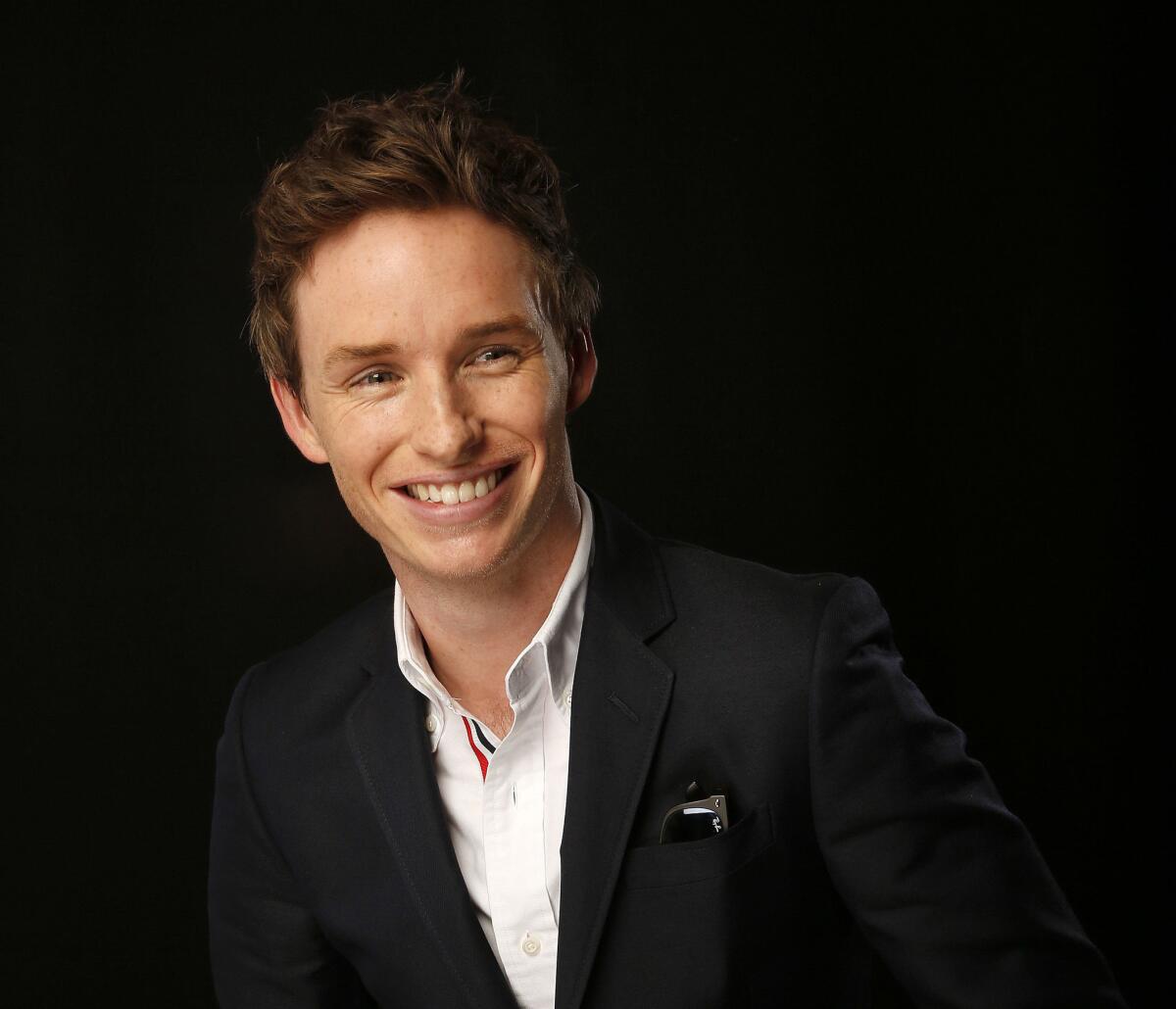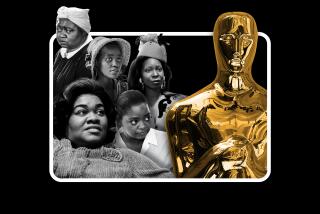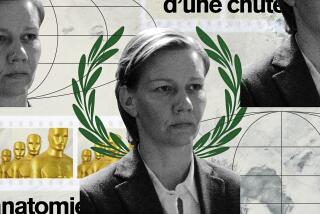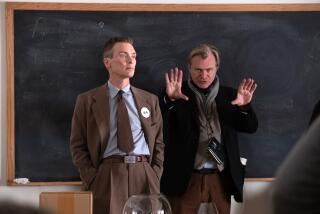Tony Awards 2015: Yet another British invasion of America

Eddie Redmayne
This year, the discussion around the Academy Awards was all about the unbearable whiteness of being an acting nominee. The Tony Awards can hardly brag about diversity. It’s never a good sign when a revival of “The King and I” is the multicultural bright spot.
If there hasn’t been the same deluge of condemnatory op-eds for the Tonys’ lack of inclusiveness, it may be because theater folks are silently contending with another embarrassing cultural matter: the British re-colonization of our acting prizes.
The math speaks for itself: Of the 10 nominees in the lead actor and actress categories for drama, five are English. Had half the nominees been African American or Latino or Asian, the year no doubt would have been heralded as another milestone. But when our ancestral overlords take 50% of the pie, it barely elicits a peep.
FULL COVERAGE: Tony Awards 2015
Broadway Anglophilia is certainly not a new phenomenon. With its august tradition of theatrical excellence, Britain has long been exporting its top-tier thespians to our shores, and this talent has cultivated a taste for language tautly delivered and wit served extra dry.
Yet the current wave of British stars, the one that includes Oscar and Tony winner Eddie Redmayne, along with Benedict Cumberbatch, Carey Mulligan and Felicity Jones, stands apart from previous generations. Although comfortable with classic and contemporary stage work, these performers are equally at home in front of the camera. They might not have the same panache of their illustrious theatrical forbears, but they seem more emotionally supple and are capable of crying real tears.
Ian McKellen made headlines a few years back warning that, with the demise of repertory theater in Britain, there’s little chance of another Derek Jacobi, Michael Gambon or Judi Dench emerging. Far be it from me to contradict Sir Ian, but Chiwetel Ejiofor, Rory Kinnear and Sally Hawkins are proving him spectacularly wrong.
Commuting regularly from TV and film to theater, these relatively young guns have merged the best of the American and British styles. Impressively bilingual, they can switch back and forth between Shakespearean eloquence and Method mumbling.
One can discern the generational difference in this year’s Tony nominees. Representing the British old guard are Helen Mirren, the front-runner to nab the lead actress award for once again playing Queen Elizabeth II (this time in Peter Morgan’s play “The Audience”), and Bill Nighy, who stars opposite Mulligan in the top-notch revival of David Hare’s “Skylight.”
These two dazzling veterans deploy all the tricks of their trade. Mirren, in a performance that is much broader than her Oscar-winning portrayal of the same character in “The Queen,” delivers a royal tour de force that has lively, humorous fun with the British monarch’s famous restraint. (At one point, she discreetly breaks into a jig.) The play doesn’t paint a very convincing portrait of this Elizabeth, but Mirren strategically humanizes what is essentially an entertaining hologram.
No one’s hands are as busy on Broadway these days as Nighy’s. Returning to a character he has portrayed before, he is seducing audiences with his technical virtuosity, crunching on all those crisp consonants in Hare’s talky script while wielding his wiry body like a conductor’s baton. Nighy knows his character inside out, but his performance is memorable primarily as a feast of flamboyant acting.
Contrast these seasoned pros with their nominated younger compatriots and you’ll find an acting style that is less conscious of the audience and more hermetically attuned to a character’s longings and ambitions. These actors seem to specialize in what Stanislavsky, the progenitor of the Method, called “solitude in public.”
In the role of a self-made restaurateur with conservative leanings who tries to resume an old love affair after his wife has died, Nighy bounces around the apartment set like a Tory dervish. Mulligan, in one of her most disciplined performances to date, doesn’t try to compete but, rather, sinks deeper into character, allowing us to glimpse the invisible battle between her progressive politics and her unresolved romantic feelings.
My Tony vote, however, would go to Ruth Wilson, nominated for her portrayal of a Cambridge University theoretical physicist who receives some very bad medical news in Nick Payne’s “Constellations.” This inventive drama imagines variations of scenes between her character and a besotted beekeeper played by Jake Gyllenhaal, testing whether in a universe of infinite possibility, this love story might have a chance of circumventing its tragic fate.
Wilson doesn’t traffic in stereotypes of female scientists but plays instead a woman, as abrasive as she is soft, who just happens to be astonishingly gifted in math and science. Her performance is impressively naturalistic yet fleet enough to handle the stylistic challenges of a work that refuses to play by realism’s rules.
Although the Tony is likely to go to either Juilliard-trained Alex Sharp in the British import “The Curious Incident of the Dog in the Night-Time” or Bradley Cooper in “The Elephant Man,” Ben Miles, a British stage actor now entering his vintage prime, would be my pick for lead actor in a play. Playing Thomas Cromwell in “Wolf Hall,” the two-part adaptation of Hilary Mantel’s celebrated novels about the Machiavellian goings-on in Henry VIII’s court, Miles manages in a plot-heavy dramatic marathon to shed light on a complicated, much-misunderstood historical figure. The great Mark Rylance has become the face of Cromwell to many, thanks to the British miniseries recently shown on PBS, but it was through Miles’ always dignified, always subtle characterization that the protagonist of Mantel’s books, a commoner turned royal fixer, sprang to life.
Although there’s obviously no shortage of brilliant actors in this country, the U.S. no longer has a monopoly on the grittiness that once set our performers apart. American realism has seeped into the world’s cultural reservoir through movies and television, yet our artists have been a little too content to stick to their own patch of ground.
This has put American actors at a decided disadvantage when the role being essayed is elevated in some way, when everyday folksiness is not the ultimate goal, when fluency and intelligence are set above the common rung.
One could concede that Redmayne’s Englishness gave him an edge in playing theoretical physicist Stephen Hawking in “The Theory of Everything” or that Cumberbatch’s accent was just right for mathematician Alan Turing in “The Imitation Game.” But surely there were many African American actors up to the challenge of playing the Rev. Martin Luther King Jr. in the film “Selma.” King’s soaring oratory, however, came naturally to Oyelowo, schooled in Elizabethan cadences at the London Academy of Music and Dramatic Art.
Globalization keeps leaving Yanks in the lurch. While “Breaking Bad” is available everywhere, Shakespeare remains the pinnacle in Britain. “The Hollow Crown,” the series of British television films in which Shakespeare’s history plays have been revitalized, has become a showcase for this agile new generation.
By submerging themselves in the metaphorically rich rhetoric of the Wars of the Roses cycle, Ben Whishaw, Tom Hiddleston, Kinnear and Cumberbatch have enlarged their capacity as interpretive artists. That’s not something that readily happens with studio movies or even the better TV shows. Shakespeare, it turns out, can still boost popularity: Cumberbatch’s coming performance as Hamlet on the London stage this summer has the buzz of the Beatles’ first appearance on “The Ed Sullivan Show.”
The musical is the one area in which America hasn’t lost its predominance. But as the Brits bring home more of our award bric-a-brac, it has become increasingly apparent how a lack of diversity — in both demographic representation and acting versatility — is causing us to come up short.
More to Read
The biggest entertainment stories
Get our big stories about Hollywood, film, television, music, arts, culture and more right in your inbox as soon as they publish.
You may occasionally receive promotional content from the Los Angeles Times.







